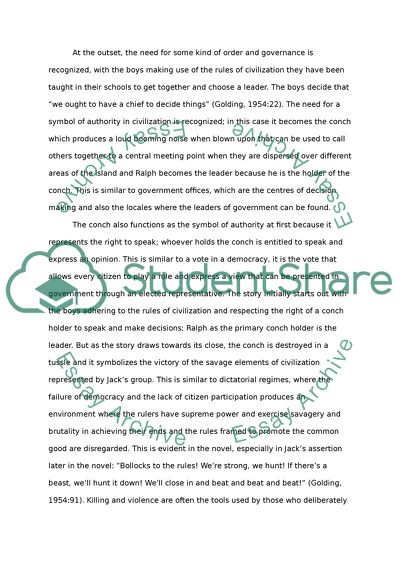Cite this document
(What does Lord of the Flies Teach Us about Governance Research Paper, n.d.)
What does Lord of the Flies Teach Us about Governance Research Paper. Retrieved from https://studentshare.org/literature/1740925-what-does-lord-of-the-flies-teach-us-about-governance
What does Lord of the Flies Teach Us about Governance Research Paper. Retrieved from https://studentshare.org/literature/1740925-what-does-lord-of-the-flies-teach-us-about-governance
(What Does Lord of the Flies Teach Us about Governance Research Paper)
What Does Lord of the Flies Teach Us about Governance Research Paper. https://studentshare.org/literature/1740925-what-does-lord-of-the-flies-teach-us-about-governance.
What Does Lord of the Flies Teach Us about Governance Research Paper. https://studentshare.org/literature/1740925-what-does-lord-of-the-flies-teach-us-about-governance.
“What Does Lord of the Flies Teach Us about Governance Research Paper”, n.d. https://studentshare.org/literature/1740925-what-does-lord-of-the-flies-teach-us-about-governance.


